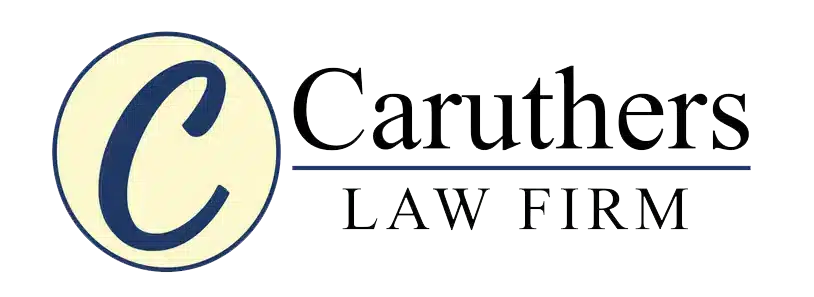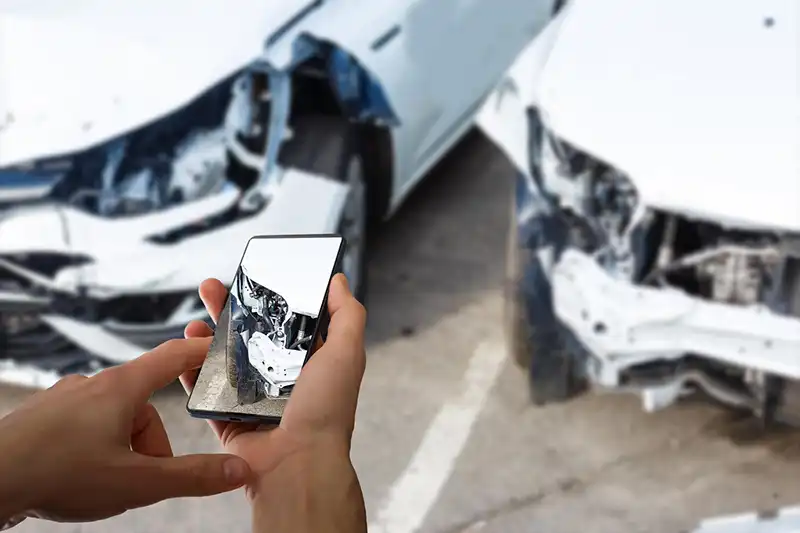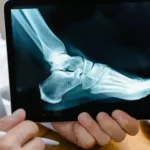Car accidents are unfortunate events that often lead to significant physical, emotional, and financial distress. In the aftermath of a collision, victims and their families seek ways to secure compensation for their losses and move forward with their lives. One of the most common outcomes in car accident cases is a settlement rather than a full trial. In this blog post, we will explore why the majority of car accident cases conclude in a settlement, the process involved, and what victims can expect.
Understanding Car Accident Settlements
What is a Settlement?
A settlement is an agreement between the parties involved in a car accident dispute, typically the injured party (plaintiff) and the at-fault party’s insurance company. In a settlement, the plaintiff agrees to accept a specified amount of money in exchange for dropping any further legal action related to the accident. This agreement is usually reached without going to court, saving time and resources for both parties.
The Settlement Process
The settlement process is a structured sequence of steps that aim to resolve a car accident dispute efficiently and fairly. Here’s a detailed look at each stage:
Investigation
The investigation phase is crucial as it lays the foundation for the entire settlement process. After a car accident, both parties engage in thorough investigations to gather and preserve evidence. This includes:
Police Reports: Obtaining the official police report, which details the facts of the accident, observations from the responding officers, and any citations issued.
Witness Statements: Collecting statements from individuals who witnessed the accident. Witnesses can provide crucial third-party perspectives on how the accident occurred.
Medical Records: Compiling medical records that document the injuries sustained, treatments received, and the prognosis for recovery. This also includes obtaining statements from healthcare providers.
Photographic Evidence: Gathering photographs of the accident scene, vehicle damages, injuries, and any road conditions or signage that may have contributed to the accident.
Accident Reconstruction: In some cases, hiring accident reconstruction experts to recreate the scene and provide detailed reports on how the collision occurred.
Each piece of evidence is meticulously reviewed and organized to build a strong case for the injured party. This phase is essential for establishing liability and the extent of damages.
Demand Letter
Once the investigation is complete and sufficient evidence has been gathered, the plaintiff’s attorney drafts and sends a demand letter to the at-fault party’s insurance company. The demand letter is a formal document that outlines:
Case Details: A comprehensive summary of the accident, including the date, time, location, and a detailed description of how the accident occurred.
Injuries Sustained: A thorough account of the injuries suffered by the plaintiff, supported by medical records and reports from healthcare providers.
Damages Incurred: An itemized list of all damages, including medical expenses, lost wages, property damage, and pain and suffering.
Compensation Sought: The total amount of compensation being demanded, based on the calculated damages and any future anticipated costs.
The demand letter serves as the starting point for settlement negotiations and sets the tone for the discussions that follow.
Negotiation
Negotiation is a critical and often lengthy part of the settlement process. Once the insurance company receives the demand letter, they typically respond with an initial settlement offer. This offer is usually lower than the amount requested in the demand letter, prompting a series of back-and-forth negotiations. During this phase:
Initial Offer: The insurance company assesses the demand letter and makes an initial offer, often lower than what the plaintiff is seeking.
Counteroffers: The plaintiff’s attorney reviews the offer and, if it is deemed insufficient, submits a counteroffer. This process can involve multiple rounds of offers and counteroffers.
Supporting Evidence: Both parties present additional evidence and arguments to justify their positions. The plaintiff’s attorney may highlight the strength of the evidence, the severity of the injuries, and the impact on the plaintiff’s life.
Negotiation Tactics: Attorneys use various negotiation tactics to reach a fair settlement. This may include emphasizing the cost of going to trial, the uncertainty of a jury verdict, and the potential for higher compensation if the case proceeds to court.
Effective negotiation requires skill, experience, and a thorough understanding of the case. The goal is to reach an agreement that adequately compensates the plaintiff for their losses without the need for a trial.
Settlement Agreement
When both parties reach a consensus, they formalize the terms of the settlement in a written agreement. The settlement agreement includes:
Settlement Terms: Detailed terms of the settlement, including the total amount of compensation to be paid and the payment schedule.
Release of Liability: A clause stating that the plaintiff agrees not to pursue any further legal action related to the accident. This release of liability protects the defendant and the insurance company from any future claims arising from the same incident.
Confidentiality: Often, the agreement includes a confidentiality clause, ensuring that the terms of the settlement and details of the case remain private.
Once the settlement agreement is signed by both parties, the plaintiff receives the agreed-upon compensation. This marks the conclusion of the settlement process, allowing both parties to move forward without the uncertainties and costs associated with a trial.
Reasons Most Car Accident Cases Settle
Cost and Time Efficiency
One of the primary reasons car accident cases settle is to save time and money. Trials can be lengthy and expensive, involving court fees, attorney fees, and other related costs. By settling out of court, both parties can avoid these expenses and resolve the matter more quickly. This is particularly appealing for insurance companies, who seek to minimize legal costs and expedite the resolution process.
Uncertainty of Trial Outcomes
Trials are inherently unpredictable. Despite strong evidence and a solid case, there is always a risk that the jury may not side with the plaintiff. Settling offers a guaranteed outcome, providing both parties with a clear resolution without the uncertainty of a trial verdict. For plaintiffs, this means receiving compensation without the risk of losing in court.
Emotional Toll
Car accidents can be traumatic experiences, and reliving the event through a trial can be emotionally exhausting for victims and their families. Settling a case allows plaintiffs to avoid the stress and emotional strain of a court battle, enabling them to focus on recovery and moving forward with their lives.
Privacy Concerns
Trials are public proceedings, meaning details of the case, including personal and medical information, become part of the public record. Settling a case allows for greater privacy, as the terms of the settlement and case details are typically kept confidential. This can be particularly important for individuals who wish to keep their personal information private.
Insurance Company Strategies
Insurance companies are often motivated to settle cases quickly to control costs and avoid the unpredictability of a jury trial. They have experienced adjusters and legal teams who negotiate settlements regularly and prefer to resolve claims without the expense and risk associated with court proceedings.
Factors Influencing Settlement Amounts
Severity of Injuries
The extent of the injuries sustained in a car accident significantly influences the settlement amount. Severe injuries that result in long-term disability, extensive medical treatment, or significant pain and suffering typically lead to higher settlements. Insurance companies consider the current and future medical expenses, lost wages, and the impact on the victim’s quality of life when determining settlement offers.
Liability
Clear liability in a car accident case can lead to a quicker settlement. If it is evident that one party is entirely at fault, the insurance company is more likely to settle promptly to avoid additional legal costs. Conversely, if liability is disputed, the settlement process may take longer as both parties gather evidence to support their positions.
Insurance Policy Limits
The at-fault party’s insurance policy limits play a crucial role in settlement negotiations. If the damages exceed the policy limits, the plaintiff may need to pursue additional compensation through other means, such as filing a lawsuit against the at-fault driver personally. In such cases, the insurance company will likely offer the maximum policy limit as a settlement.
Negotiation Skills
The negotiation skills of the plaintiff’s attorney can significantly impact the settlement amount. Experienced attorneys understand the tactics used by insurance companies and can effectively advocate for their clients, ensuring they receive fair compensation. An attorney’s ability to present a strong case and negotiate assertively can lead to a more favorable settlement.
The Role of Attorneys in Settlements
Legal Expertise
Attorneys play a vital role in the settlement process by providing legal expertise and guidance. They understand the nuances of personal injury law and can accurately assess the value of a claim. Attorneys handle all communications with the insurance company, ensuring that the plaintiff’s rights are protected and that they receive fair compensation.
Evidence Collection
Collecting and presenting evidence is critical in securing a fair settlement. Attorneys gather medical records, accident reports, witness statements, and other relevant documentation to build a strong case. They may also work with experts, such as accident reconstruction specialists or medical professionals, to support the claim.
Negotiation and Advocacy
Negotiation is a key aspect of the settlement process. Attorneys use their negotiation skills to advocate for their clients, countering low settlement offers and pushing for higher compensation. They understand the strategies used by insurance companies and can effectively negotiate to achieve the best possible outcome for their clients.
Preparing for Trial
While most car accident cases settle, some may still go to trial if a fair settlement cannot be reached. In such instances, having an attorney prepared to take the case to court is crucial. The readiness to proceed to trial can also motivate insurance companies to offer a more reasonable settlement to avoid the costs and risks associated with litigation.
When Settlements May Not Be the Best Option
Low Settlement Offers
In some cases, the settlement offer may be significantly lower than the actual damages sustained by the plaintiff. If the insurance company is unwilling to offer fair compensation, proceeding to trial may be necessary to secure the appropriate amount. Plaintiffs should work closely with their attorneys to evaluate whether a settlement offer is reasonable or if litigation is a better option.
Disputed Liability
If liability is heavily disputed, reaching a settlement may be challenging. In such cases, both parties may need to present their evidence in court to determine fault. This can lead to a longer resolution process, but it may be necessary to achieve a fair outcome.
Serious Injuries and Long-Term Impact
For cases involving severe injuries or long-term disabilities, the damages may be extensive and ongoing. It is crucial to ensure that the settlement covers all future medical expenses, lost income, and other related costs. If the insurance company’s offer does not adequately address these long-term needs, pursuing litigation may be the best course of action.
The Best Houston Car Accident Attorneys
Car accident cases often conclude in settlements due to the benefits of cost and time efficiency, certainty, emotional relief, privacy, and the strategic preferences of insurance companies. While settlements are common, it is essential for plaintiffs to work with experienced attorneys who can guide them through the process, advocate for fair compensation, and determine whether a settlement or trial is in their best interest.
The Caruthers Law Firm in Houston is dedicated to helping car accident victims navigate the complexities of personal injury claims. Our team of experienced attorneys is committed to securing the best possible outcomes for our clients, whether through settlement negotiations or litigation. If you or a loved one has been involved in a car accident, contact us today to discuss your case and learn how we can assist you in achieving the justice and compensation you deserve.
Caruthers Law Firm
Address: 4141 Southwest Fwy,
Suite 400
Houston, TX 77027
(713) 526-9557
View our Google Listing






